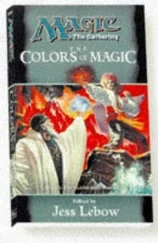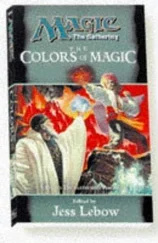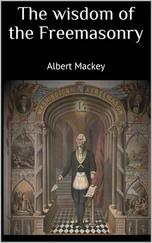Suleyman looked at the child with visible disgust, and his words came out of his mouth like spittle.
“Why do you want to know the time? Do you have a date?”
“No, I don’t have a date,” the child answered.
“So what good will the time do you?”
“I just wanted to chat. I’m looking for my father.”
“I don’t understand. What’s the relationship between my watch and your father?”
“Well, you see, my father left my mother and me when I was very small, so I don’t know him. My mother said that one day he’ll come back and that he’s very rich. So every time I see a person like you, dressed like a rich man, I think that maybe he’s my father.”
“And what did your father do?”
“He was a thief,” the child said with pride.
“You little devil! Get away! I’m not your father.”
“Too bad. You’re his spit and image.”
Suleyman attempted to give the child a kick, but he fled, vanishing into the crowd.
This nighttime stroll through nauseating streets long ago banished from Suleyman’s memory — he only wished to dwell on the sumptuous décors of grand hotels and on liqueurs imbibed around luxurious swimming pools — was becoming unbearable. Again he thought of Abdelrazak, who was responsible for his distress, and he made a wish: that Abdelrazak would see his own mother prostitute herself in a brothel for lepers when she was ninety. (And that was really a quite charming wish compared to what Suleyman held in store for him in the near future.) Suddenly he stopped to listen to a voice that had come out of nowhere, but that he had known since childhood. A radio was playing the much-loved songs of the mythical chanteuse whose voice would accompany men in their daydreams and unappeased desires for a long time to come.
The Mirror Café had lost the better part of its original footprint and its terrace now occupied merely a small parcel of sidewalk. A few moldy mirrors with gilded frames — survivors of the disaster — were still hanging on the walls, as if to provide the café with proof of its identity. Suleyman was not put off by its decline; he had expected it. He was contriving to look affable and good-natured for his meeting with the young stranger who had telephoned, and who had assured him that he’d easily recognize Suleyman because, being an avid newspaper reader, he had often admired his picture on the front page when the topic was some financial scandal or an indictment for premeditated murder. This information, despite its anecdotal and slightly insolent character, had reassured Suleyman as to the young man’s social milieu and level of education. If the young man knew how to read, he would know how to act in a respectful, honest way toward an elder. Suleyman was a great believer in education, despite not having received any. In fact, he could already imagine this admiring and obedient stranger entirely devoted to him. He walked onto the café’s terrace with his head held high and an authoritative pout on his face, as if he were posing for a newspaper real estate ad.
Ossama caught sight of him and was about to wave to him, but Karamallah held him back by the arm. The master wanted to study the infamous man in action from afar and, if only for a moment, to observe his bearing among a public particularly steeped in disrespect for wealth. He was in for an astonishing sight. Suleyman was inspecting the terrace with the eye of a boss who had come to hire day laborers and who suddenly realizes that he has before him a gang of fainéants who have nothing better to do than smoke hookahs, play backgammon, or rant against the government with huge bursts of laughter. All these men sprawling about in languorous lethargy had a knack for exasperating him. Suleyman looked like a man who had fallen to the bottom of a pit and was awaiting the advent of improbable saviors.
At last Ossama stood up and invited him to sit at their table. The sight of the young man reinforced Suleyman’s favorable opinion of his education and his family’s social standing. The alleged student was dressed very stylishly, and the older man sitting next to him seemed to be his equal in the sartorial arts. A sour note in this display aroused Suleyman’s suspicion, however: the two elegant men who had met with his approval were accompanied by a third with a shaved head and a black beard that hid half his face. This character was wearing a raw silk robe open at his thick neck and glasses with tinted lenses that made him look like a hit man in a comedy. It was to be feared that this unexpected guest would disrupt the idyllic interview Suleyman had imagined, and it was imperative to know for what reason the presence of this intruder — a blot on the gathering — had been deemed indispensable. If it were as a neutral observer, a better choice could have been made. With this thorn in his side, Suleyman moved toward the table where the fearsome leaders of an uproarious game awaited him.
“Welcome!” exclaimed Karamallah. “What an honor. Sit down. Today is a day of honey! Allow me to introduce myself, Excellency. My name is Karamallah, and here are Professor Nimr and our young friend Ossama, to whom we owe the immense pleasure of meeting you. A celebrity of your repute has no need to introduce himself. You are known the world over. I’m not mistaken, am I?”
“You are very kind; I don’t deserve such praise,” answered Suleyman, not taking his eyes off Nimr. “May I ask what Professor Nimr teaches? If I’m not prying. .”
“Not at all. I’m pleased to inform you that Professor Nimr teaches sociology. Right now, however, he is taking a leave of absence because of a broken heart.”
“Sociology you say? I’ve heard of it. What exactly is this
science?”
“Sociology is the science of survival in society,” Karamallah answered. “Professor Nimr teaches young boys how to get by in life.”
“May Allah protect him! He is a decent man. Ah, to have met someone like him in my youth. I did not have such good fortune.”
“On the contrary, I find that you have had a great deal of good fortune,” Karamallah said sententiously.
“Why do you say that?” asked Suleyman, taken aback by this slightly after-the-fact prediction.
“Because none of his students made a fortune. That’s why I think that you have been fortunate.”
“That’s quite sad. There must certainly be a reason for this collective failure.”
Suleyman was being drawn in more than he would have liked, but the circumstances offered no way out. His interlocutor was leading things and it would have been impolite not to follow him in his rather hasty conclusions. The discussion was just beginning and he had to appear friendly, understanding, and even capable of generosity. To this effect he had brought with him a judiciously calculated sum of money that he intended to place on the table at an opportune moment to set the transaction in motion. In his mind, nothing had changed; just business as usual — only the partners were different.
“I trust that my friend Nimr will forgive me, but it has always seemed to me that his teachings lacked virulence,” resumed Karamallah. “For his students’ participation in the world’s future he preaches virtue, disdain for money, and modesty. Can you tell me, Excellency, you who know all the pitfalls and difficulties of business — is it possible to be virtuous and become rich? I wanted to see you to ask you this fundamental question that harks back to ancient times.”
Suleyman looked at his three companions one after the other, hoping for a sign, a clue that would set him on the road to a suitable response. Instead, they seemed amused by his hesitation.
“Well, it’s more complicated than that,” he said at last, as if he were excusing himself.
Читать дальше












